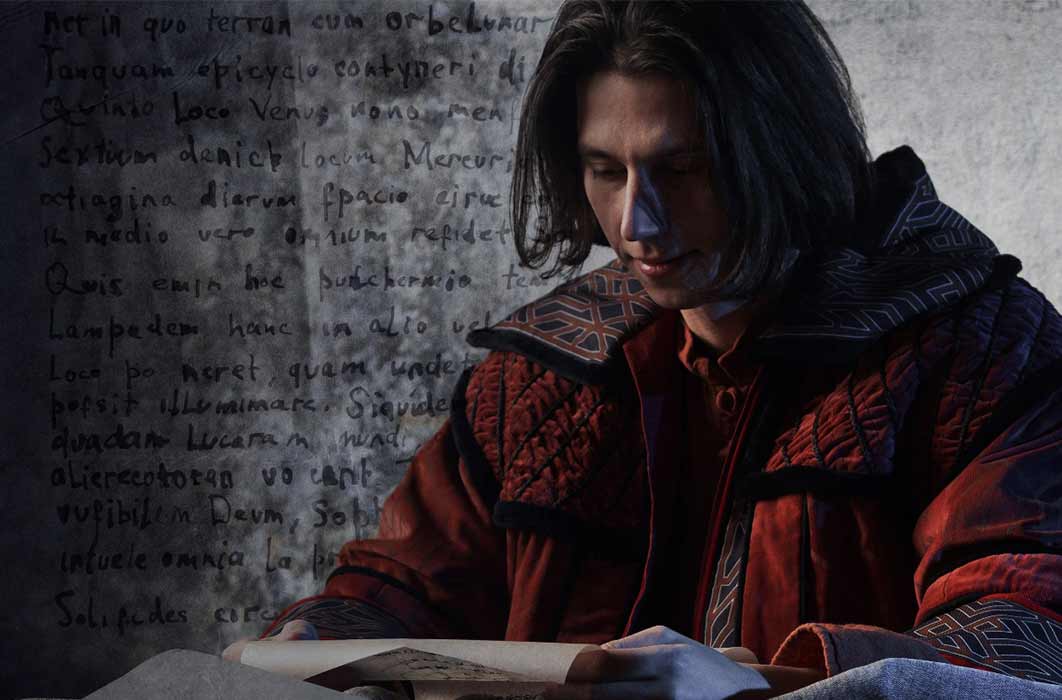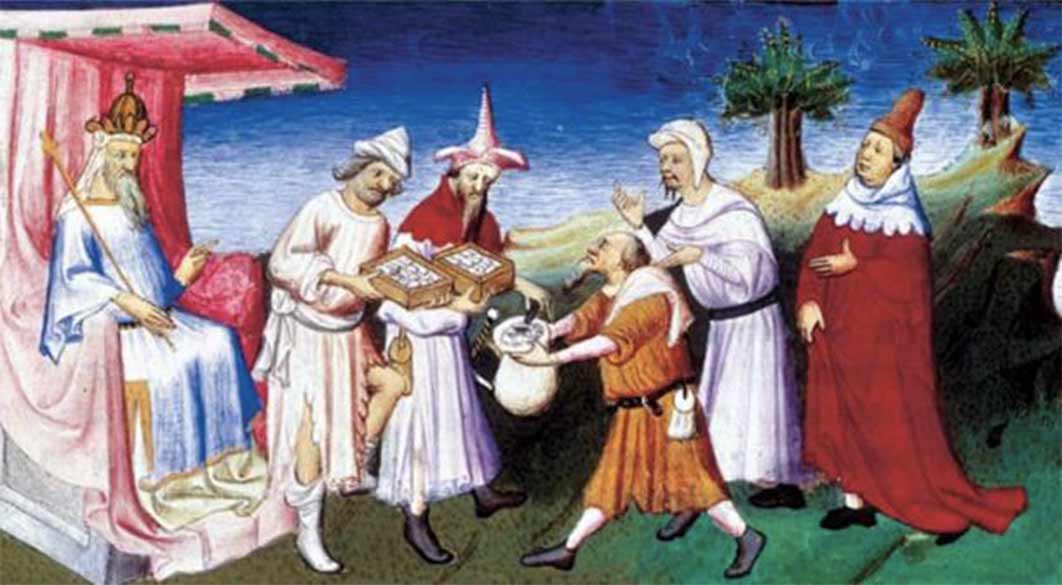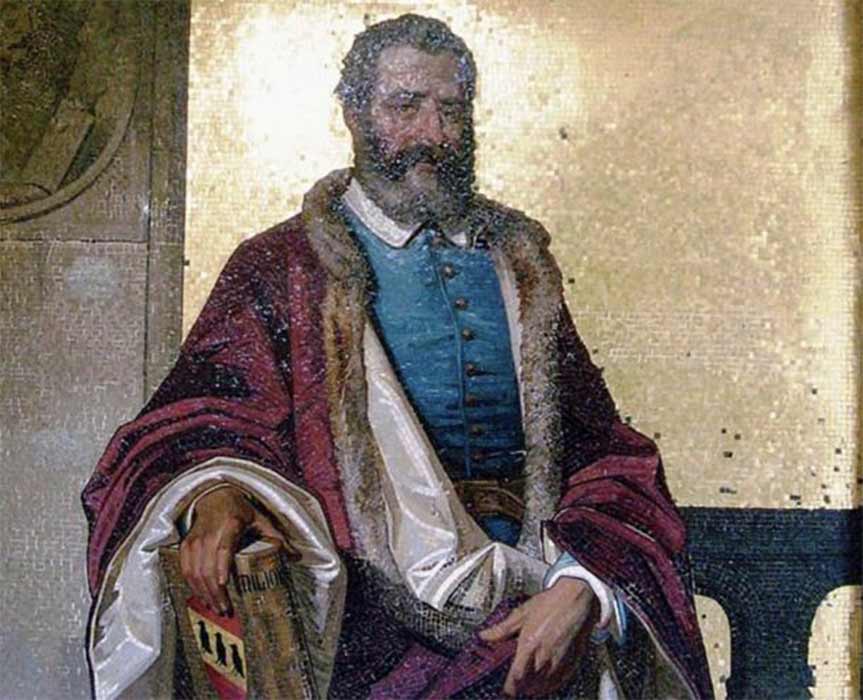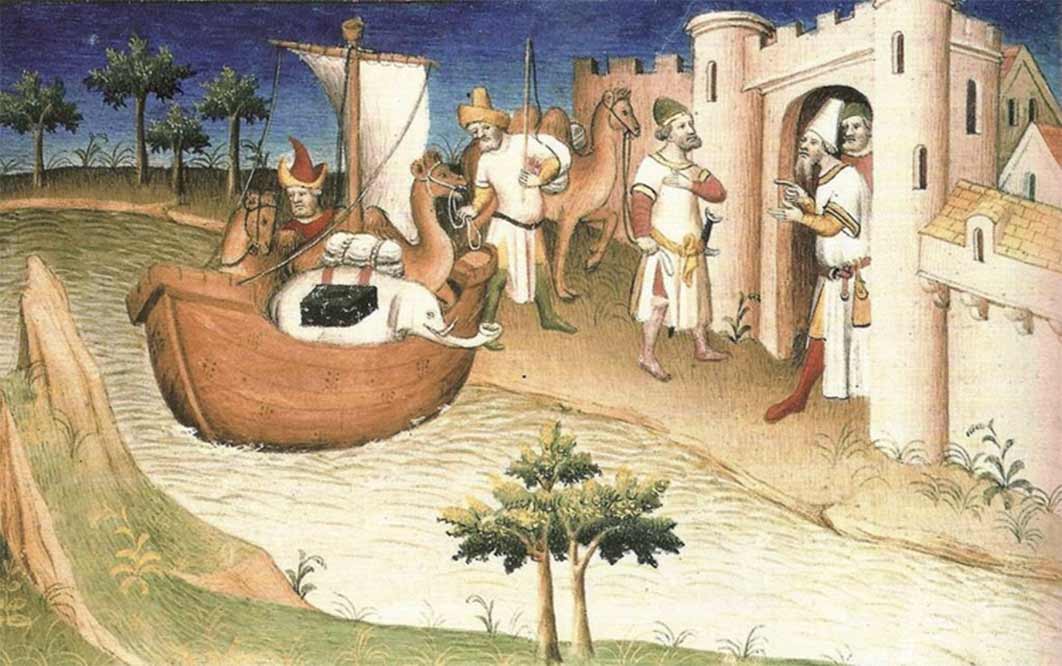
The Ghost Of Marco Polo Haunting The Fictional Realm
In 2016, Ancient Origins published an article entitled Is Marco Polo a Fictional Character? and it led to hate-mail and overall outrage among some readers. It was blown so out-of-proportion that the author decided to give $2,000 to the first person who could provide historical evidence of Polo’s existence. Of course, no such evidence exists, so the proverbial threats ceased, but such an adverse reaction causes one to wonder: why would anyone be so attached to this fictional character whom they believed to be a historical figure, and why would anyone suggest that he was, in fact, a real person, when there is no evidence whatsoever to support such a viewpoint?

Kublai Khan gives financial support to the Polo family, and accepts gifts of the Venetians by Master of Busico (1412). (Public Domain)
A Challenge to Think Critically
This leads to aspects of critical thinking, which is highly praised in educational doctrines but rarely taught or respected in classrooms. Educational leaders often claim that critical thinking is targeted in schools, but students are not taught how to apply it, nor do some of them grasp exactly what it is. Some teachers do not know what it actually is, and they do not want to teach it or engage in its classroom practice. This is because their beliefs and practices determine, to an extent, who they are as individuals, and if such beliefs are questioned, their very existence is threatened. That is why critical thinking is often not praised in person, though it is a frequent expression in school mission statements and student planners.
Some teachers have actually been instructed by administrators that they do not encourage students thinking critically, hence questioning authorities. Such topics involve the efficacy of masks in the stretched-out fight against the pandemic, the historiography of religious doctrines, and the fact that some historical information presented in history textbooks is blatantly false. Many books touch upon this topic; a couple general ones are Lies My Teacher Told Me and Lies Across America: What Our Historic Sites Get Wrong, both by James Loewen. The former, which is hailed as a history classic, reveals information about the first Thanksgiving, Christopher Columbus, whose real name was Colon, hence ‘colonies’, and his numerous other appellations throughout all the countries in America, the real history of the war in Vietnam and John Brown and Abraham Lincoln, and the disappearance of certain topics, including the full picture of racism and suffrage in the Americas, in high school and university textbooks. Other topics include Ponce de Leon, who was not seeking the proverbial fountain of youth but rather seeking gold and slaves for Hispaniola, and 18th-century census reports revealing that a small town like South Kingstown, Rhode Island included 935 whites, 333 African slaves, and 223 Native American slaves.

Mosaic representing Marco Polo at Villa Hanbury, Ventimiglia, Italy. (Lotho2 /CC BY-SA 3.0)
Another famous historical person who was completely misunderstood, is Benjamin Franklin, who said (referring to real Americans): “It would be a strange thing if six nations of ignorant savages should be capable of forming a scheme for such a union and be able to execute it in such a manner as that it has subsisted ages and appears insoluble; and yet that a like union should be impracticable for ten or a dozen English colonies”. Historical practices, such as scalping, are often misunderstood as well; Loewen wrote, “In Vermont the settlers worried about savages scalping them”. This description is accurate, provided one understands that the settlers were Native American, the scalpers white. Likewise, American soldiers in Vietnam collected ears “just as British colonists in North America collected and displayed Native American scalps”. Publishers and educators typically do not want to offend others by providing contrary information that is controversial to widely held beliefs, and they therefore perpetuate lies and continue recycling false information about historical people.
What evidence do we have for the existence of Marco Polo? (Bibliothèque nationale de France / Public Domain)
The Evidence for Marco Polo
Marco Polo is one such misunderstood historical character. Why do people think that Marco Polo was a historical person? Is there any evidence? The only references to a historical figure named Marco Polo (which happens to have been one of the most popular names in Florence during the 13th century) appeared in a book written by a fiction author, Rustichello da Pisa, who is well-known for his historical romances involving King Arthur, hence Arthurian Romances, and in other books that were based upon his novels. There is no evidence whatsoever outside of such literary concoctions, and he literally plagiarized himself by copying, word-for-word, some of the text from his previous novels and placing them into his story of Marco Polo, changing only the place names alone. (Once a work is published, it no longer belongs to the writer, but to the publisher, who typically pays for the work, so as an author, the work cannot be copied, republished, or plagiarized in any way.)






